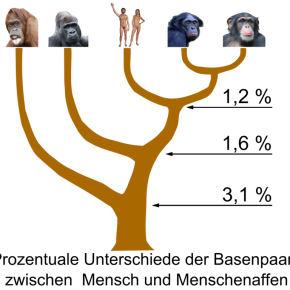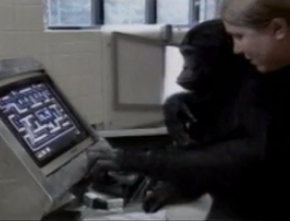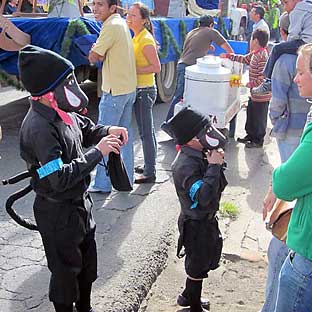Bonobo Happiness
 Lately I’ve been obsessed with learning more about Bonobos partly because until recently I had not even heard of them. In the briefest terms, they are the primates closest to us in the genetic tree, having only 1.2% difference in DNA from humans. That number is considered remarkable when you consider that there is more DNS difference among different species of birds than between humans and bonobos.
Lately I’ve been obsessed with learning more about Bonobos partly because until recently I had not even heard of them. In the briefest terms, they are the primates closest to us in the genetic tree, having only 1.2% difference in DNA from humans. That number is considered remarkable when you consider that there is more DNS difference among different species of birds than between humans and bonobos.
A Clue About Happiness
Scientists believe the bonobo to be one of the happiest creatures alive. The question then is why are bonobos so happy? If they are our closest cousin, is there something we can learn from them? A variety of factors may attribute to bonobo happiness. Bonobos are only found in the wild in one area of Earth… the Congo. Like many other jungle dwelling animals they spend only a couple hours each day gathering food and much of the remainder of the day is spent in play and leisure activities. Bonobos seems to have a great sense of community bonding. Females are the group leaders. Bonobos are highly sexual with sex acts lasting on average from three to six seconds (rarely longer) but happen multiple times a day with each individual. Sex acts are used in greetings, goodbyes, and interestingly, for conflict resolution. On the rare occasion when a fight breaks out, it is commonly  resolved in only seconds by a sexual act of apology. Sex is also a part of the recreational play. Bonobos are certainly not monogynous and actually appear to be bisexual as well. Fatherhood certainty is impossible to establish given the nature of sex. What is even more interesting is that among animals, the vast majority only have sex when they need to reproduce. Sex, for them, is not something engaged in for any other reason than to reproduce and only takes place when the females are fertile.
resolved in only seconds by a sexual act of apology. Sex is also a part of the recreational play. Bonobos are certainly not monogynous and actually appear to be bisexual as well. Fatherhood certainty is impossible to establish given the nature of sex. What is even more interesting is that among animals, the vast majority only have sex when they need to reproduce. Sex, for them, is not something engaged in for any other reason than to reproduce and only takes place when the females are fertile.
Today I saw a remarkable video on TED which really made me start thinking. It showed bonobos interacting with humans as well as each other.
Bonobo Intelligence (All are untrained skills bonobos learned on their own):
- Comfortable walking upright for long periods of time
- Basic reading, writing and typing (on a computer) of over 400 lexigram symbols
- Understanding basic English
- Ability to understand enough English to get a cigarette lighter out of a pocket
- Ability to light a fire with a lighter when asked
 Cleaning glass with a cloth
Cleaning glass with a cloth- Knows how to use a hand mirror
- Able to use a scary mask to try to scare others
- Give others haircuts with scissors
- Parent bonobos will take sharp scissors from children (realizing they are too sharp and dangerous for children)
- Tool making equal to primitive man
- Food sharing
- Play harmonica, xylophone and keyboard
- Ability to play the Pacman video game and listen to directions on how to win the game
I’m absolutely amazed by bonobos and hope I can learn from some of the things they do in their lives to be so happy!



